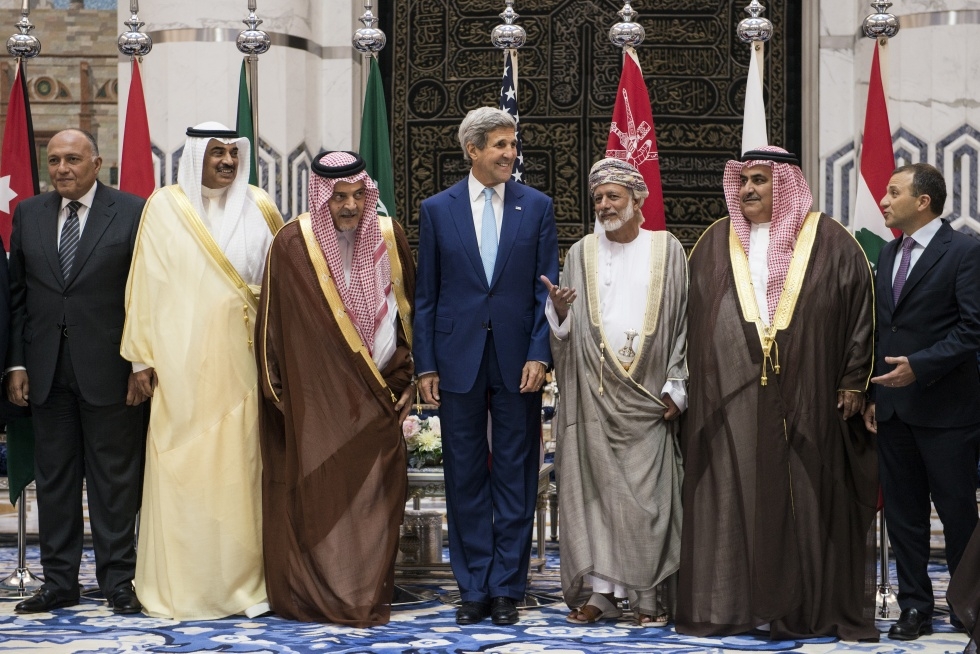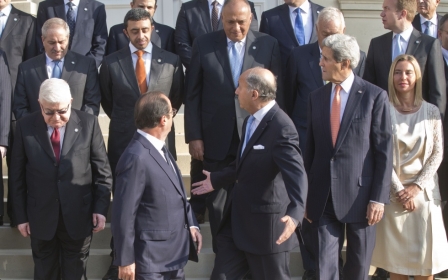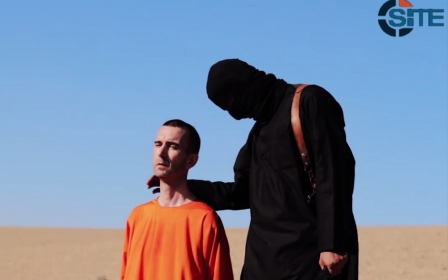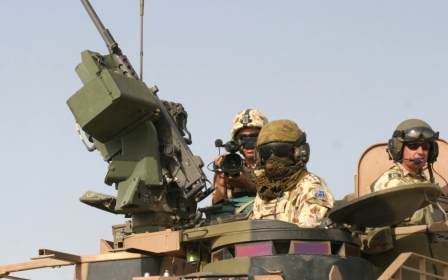Arab countries offer to join US air strikes against IS

Several Arab countries have signed on along with France in offers to join the US air strikes against Islamic State militants in Iraq and Syria, US officials told Reuters on Sunday.
It was not immediately clear which countries had made the offers ahead of an anti-IS meeting in Paris on Monday where more specific roles in the emerging coalition will reportedly be discussed.
The countries who offered their fighter jets did not limit their involvement to Iraq, a senior US State Department official told reporters in Paris.
Arab nations may participate in the campaign against IS without dropping bombs, including flying arms to Iraqi or Kurdish forces on the ground, conduct spy flights or provide logistical support, a State Department officials said.
All strikes would have to be approved by the newly assembled government in Iraq and US military leaders.
"Some have indicated for quite a while a willingness to do them elsewhere," a State Department official said. "We have to sort through all of that because you can’t just go and bomb something."
White House officials have indicated that US Secretary of State John Kerry will name the Arab countries in testimony to Congress early this week, after his return from Paris, the New York Times reported.
Ten Arab countries have so far signed on to the US-led coalition against IS. They include Egypt, Iraq, Jordan, Lebanon and members of the Gulf Cooperation Council, including the United Arab Emirates and Saudi Arabia.
In recent days, as Kerry's pursuit of regional support for the coalition has ramped up, US officials have been clear that air strikes will not gather momentum until Iraqi, Kurdish and Syrian rebel forces on the ground are equipped, trained and ready to fight in earnest, a process that will take some time.
“This isn’t going to be ‘shock and awe’ with hundreds of airstrikes,” one official told the New York Times, referring to the initial attack on Baghdad at the opening of the Iraq war in March 2003. “We don’t want this to look like an American war.”
France is thus far that only country to publicly offer air support to the US, but has limited its involvement to Iraq. The UK, Washington's main ally in 2003, has been less clear about the means by which it plans to be involved in the coalition.
Last week, Foreign Secretary Philip Hammond, scheduled to attend the Monday's conference in Paris, warned Parliament that launching airstrikes against a country like Syria, which maintains strong air defences, would be “an order of magnitude more complicated” than those in Iraq.
The UK Parliament debated launching airstrikes against Syria in 2013, and ruled against it. Last Thursday, Hammond said he was "very clear" that the government will not be “revisiting that position.”
“Britain will not be taking part in airstrikes in Syria," Hammond said.
However, the Prime Minister’s office later appeared to overrule the Foreign Secretary, saying that David Cameron “has not ruled anything out” with regard to joining the US-led strikes in Syria.
On Monday, reports emerged that Cameron is planning to call for airstrikes as early as next week, after this Thursday's Scottish referendum.
UK MPs have been told to expect to be recalled next Thursday, following Cameron's attendance at the UN General Assembly in New York, The Telegraph reported.
Several Tory MPS who opposed military intervention in Syria last year, including former defence secretary Liam Fox, told The Telegraph that they are now prepared to back military strikes.
“I think there’s a clear imperative we deal with ISIL, deal with the threat, ensure the stability of the region itself," Fox said. "There is a clear need for us to act internationally against this group before it’s too late.”
Stay informed with MEE's newsletters
Sign up to get the latest alerts, insights and analysis, starting with Turkey Unpacked
Middle East Eye delivers independent and unrivalled coverage and analysis of the Middle East, North Africa and beyond. To learn more about republishing this content and the associated fees, please fill out this form. More about MEE can be found here.




